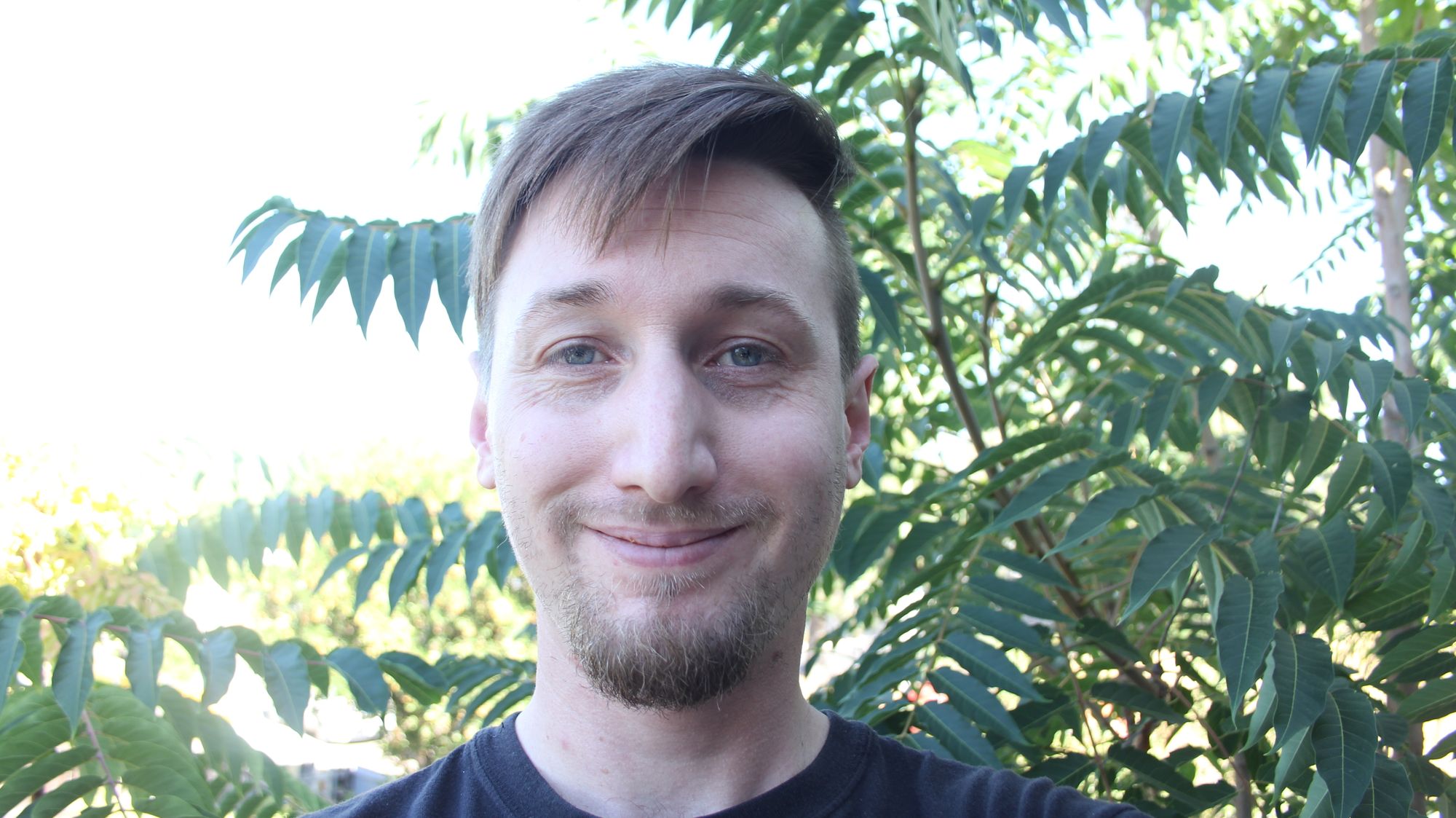COVID-19 has caused incalculable suffering. For environmentalists, this only portends the coming devastation of climate change. Yet some have argued that for all of the damage the pandemic has incurred, it has also precipitated a recovery in the environment by bringing society to a standstill. This is, to some extent, borne out by the data: the International Renewable Energy Agency has estimated an overall 6-8% reduction in annual emissions for 2020. Reports suggest that air quality has also improved in cities facing lockdown.
But these figures obscure the magnitude of the climate crisis and the ephemerality of these small gains. In truth, the reduction in emissions induced by lockdowns and economic downturn is both temporary and insufficient to set the world on a sustainable path. To take one stark example, the reduced level of emissions in 2020 would need to persist every year until 2030 to reach the 1.5°C goal set out by environmental scientists. Without a sustained reduction in consumption and emission, possible only through the restructuring of systems that put us on the path to climate crisis in the first place, we remain on a collision course with catastrophe.
The pandemic has also put us on the back foot on several crucial climate issues. Major polluters are receiving government assistance, for example, in the wake of the economic devastation brought on by COVID-19. Without this assistance, we might have seen these companies wither away under the financial strain of lockdown and in competition with renewables. In Brazil, President Jair Bolsonaro has accelerated deforestation in the Amazon and is forcing Indigenous people to flee their land, reducing our ability to deal with CO2 emissions. Meanwhile, important international climate talks originally scheduled for 2020 have been postponed for a year due to COVID-19 restrictions. Given the short timeframe outlined by the UN’s IPCC report to deal with global emissions, even small delays represent precious time lost.
From the other direction, claims that the climate will benefit from the pandemic also obscure the material impacts of the industrialized world’s behaviour. For instance, pollution itself has been linked to severe outcomes for patients who contract COVID-19 due to the respiratory nature of the illness. Climate change itself is already linked to the emergence and spread of infectious disease by way of increased temperature and waning biodiversity. These are factors created by humans in pursuit of profit, not some autonomous immunological reaction from the planet. To say otherwise obviates this responsibility.
In spite of these glaring contradictions, some still argue that COVID-19 is the Earth’s way of 'healing itself.' These claims are often made by individuals who are not a part of the frontline communities most affected by the virus. This line of thinking dovetails with virulent strains of pseudo-environmental (often termed 'ecofascist') thought. Arguably the most popular of these threads is a disturbingly popular Malthusian argument about solving climate change through population control.
For those who focus on overpopulation, the best approach to climate change isn’t reducing consumption, rebalancing the Global North/South disparity in emissions generation, or aiming to build a degrowth economy. Instead, these so-called environmentalists argue that to halt anthropogenic climate change, we must radically reduce the world’s population. More common than not, these arguments point to countries in the Global South for depopulation. The continent of Africa, for example, has been experiencing a population boom for some time, causing powerful individuals to argue for population control initiatives to alleviate 'poverty, climate change, and all manner of social ills.'
These are deeply ahistorical, nonfactual and racist narratives. The largest emitters of global emissions are countries that are, by and large, in the Global North, with their wealthier white populations consistently topping consumption charts and standing in the way of policy changes. Countries like Mozambique, which has experienced devastating flooding, and Afghanistan, which is going through unprecedented stretches of drought, are suffering the worst consequences of climate change at the hands of the Global North’s consumption; focusing on their faults is a ludicrous position.
Colonisation, slave labour and class-based oppression fuelled the Industrial Revolution, which itself ushered in the climate crisis. The construct of American capitalism is itself deeply racialised and tied in directly with international economic relationships, as seen for example in the UK’s passive investment in slavery long after abolishing the practice. The suggestion that the people at fault are the very populations who were stepped on to position the Global North in a dominant international role is offensive, and the idea of reducing their population is genocidal.
These same dynamics are playing out with regard to COVID-19. As of August 5th, Black and Indigenous Americans are around 2 times more likely to die of COVID-19 than their white counterparts as the outbreak compounds with historical public health inequities. Over 900 frontline workers in the United States have died in the face of pandemic, while Amnesty International suggests the UK had the second highest death rate of frontline workers out of 79 countries as of July. Frontline workers are more likely to be women, people of colour and to live around the poverty line.
When relatively privileged (white, male, wealthy) individuals portray the pandemic as a boon for the environment, they gloss over the deaths of the most vulnerable. The outrage of this sentiment compounds in light of a Nature study released this year that indicated that the poorest half of populations across a range of countries consumes less than the top 5%, both internationally and intranationally. Some of the most powerful figures in the United States have taken these ideas a step further in stating explicitly that sacrificing sections of the population to the virus is a worthwhile exchange for unimpeded economic growth, casting the effects of the pandemic and the climate crisis entirely to the wind in favour of stock market gains.
The emerging 'anti-mask phenomenon' further threatens the most vulnerable under similar logic. 'Anti-mask' sentiment comes from misbegotten notions of liberty: that if someone is asked to stay home or to wear a mask in public, their freedom has somehow been infringed. Individuals who make these claims seem to pay little mind to the restrictions the pandemic places on the working class and the poor. Demands to once again have their hair cut or food served ring hollow when millions more Americans are facing eviction and unemployment, unable to provide shelter and food for their families. The lack of choice for the working class, already under strain in the face of capitalism but made worse in light of the pandemic, is exemplified by essential workers who are forced to labour in dangerous conditions in order to keep their communities on their feet.
It should be noted that remaining in lockdown at home is not consequence free. The mental health effects of lockdown can be severe, leading to depression and suicide in some cases. Yet there is a bourgeois notion of freedom that the poor don't have the luxury to miss, because they're either starving at home or out toiling in the community, faced with serving the needs of the middle and upper classes.
This notion of freedom confuses authority as a means of exercising power over others with the authority imbued by expertise which is then shared to mutual benefit. For instance, the authoritarian dominance forcefully imposed upon protestors by police and other government officials through violence and intimidation falls under a clear violation of classic libertarian thought. As Martha Ackelsburg describes in Free Women of Spain, liberty stands in opposition to 'the exercise of power in any institutionalised form — whether economic, political or sexual — brutalises both the wielder of power and the one over whom it is exercised.'
In contrast, authoritative scientific and health recommendations around the benefits of wearing a mask do not conform to this definition; here the knowledge is shared freely in agreeance with anarchist Colin Ward’s description: 'knowledge and wisdom are not distributed in order of rank, and they are no one person's monopoly in any undertaking.' Therefore, those who refuse to wear a mask are not rebuking authority, but rather exercising authority. They are wielding their unequal power over the working class and the vulnerable by putting them at risk of infection and death.
It is important to remember that the inequities causing disproportionate death were put in place by governments. As Professor Sir Michael Marmot outlines in his analysis of the COVID-19 epidemic, the same mortality trends researchers have observed as a result of racial, gender and class hierarchies are exacerbating the effects of COVID-19. He conveys that years of austerity in the UK have driven death rates in a dramatic fashion due to underfunding of public institutions like the NHS and Public Health England. The effects of economic inequality and a lack of health equity have repeated to deadly effect around the world.
In the short term, concerns remain about how to bring the COVID-19 crisis to an end. Most people believe that the only way to truly halt the spread is with a vaccine. To this end, vaccine options are in development all over the world. Yet entrenched hierarchies may prevent those who need the vaccine most from getting access. In America, a history of medical and scientific malpractice directed at Black communities has understandably fomented distrust of medical interventions and may mean resistance to the vaccine.
Compounding on this, the vaccine R&D efforts have in large part been turned over to the free market. Major pharmaceutical companies in America have been allocated billions of dollars in government funding with no guarantee that their vaccines will be affordable for all citizens. Vanessa A. Bee outlines how a similarly public-private approach to Ebola vaccine development led to disastrous delays. Bee even goes so far as to say, 'Had public labs not relied on the private sector ... the vaccine’s 5-year timeline to reach U.S. and European markets might have been shortened.'
Uninhibited access to vaccines is essential in light of the socioeconomic stratification of the pandemic’s effects. The #FreeTheVaccine movement was formed in April by the Universities Allied for Essential Medicine (UAEM) and the Centre for Artistic Activism. The goal of #FreeTheVaccine is to combat the profit motives of these companies, demanding countries use compulsory licensing powers to enable the production of patented medications. This echoes an argument made by Peter Kropotkin in The Conquest of Bread, where he states that inventions are 'hampered by patents and Capitalism, that bane of present society, that stumbling block in the path of intellectual and moral progress.' Instead of relying on vaccines as drivers of profit for corporate entities (vaccines are historically unprofitable), there is a strong argument to turn away from a free market model for emergency development, and for the funds earned from vaccines and other medication licensing to be given to the public sector to precipitate faster research timelines and increased access to those who need it most.
Constructing new systems goes beyond underfunding the NHS, Public Health England, and public health research in America. The project extends past Donald Trump dissolving a key pandemic task force. Resolving these high-level governmental issues will help, but they will not realign the recalcitrant systems of hierarchical oppression that have driven the worst aspects of the pandemic.
Rather than changing our economic and environmental circumstances, COVID-19 has fed on extant inequalities endemic to those conditions. Pollution was already claiming lives in poorer urban communities before COVID-19 emerged, and COVID-19 has made the problem worse. Inhumane health conditions in prisons and detention centres were well documented, and the pandemic has run rampant through both. A vicious for-profit healthcare system left millions to die or wallow in bankruptcy before the virus and those numbers have only sharpened over the past several months. Yet what this dark moment provides is a clear look at the harsh disparities within our society, and thus a real opportunity to galvanize meaningful support to agitate for change.
We’ve begun to see this through the uprisings across America and around the world. The Movement for Black Lives (M4BL) launched its latest campaign in grief over the murder of George Floyd and so many other Black men and women, but is also fuelled by deeper systemic critiques. Abolitionists within the M4BL are fighting against policing and prisons; protestors are arguing for better funding for local schools; demonstrators are demanding that capitalism be dismantled. These rallies and marches are driven by many factors, but the wildly unfair and cruel nature of COVID-19’s murderous rampage has left entire communities reeling from financial insecurity and death with little recourse besides protest.. The ensuing rage allowed the movement to nucleate in a sporadic, decentralized fashion all over the United States and beyond its borders in a concerted fight.
The protests have been successful in a way that purely electoral efforts have not. Sustained actions have led to the removal of police from schools in Denver, Minneapolis, and other cities, a longstanding goal of abolition groups. Billions of dollars in budget cuts to police forces were implemented across the country in the wake of the demonstrations. In refractory contrast, Democratic president-elect Joe Biden has made it clear he does not support defunding the police, which made the 2020 presidential election a choice between two unshakeably pro-police platforms, albeit that one is reactionary and authoritarian in orientation. Electoral mechanisms to address systemic issues of racism and brutality pale in promise relative to the gains achieved through direct action.
The contrast between the government and the community permeated the outbreak. As centralised governments abdicated leadership during the onset of the pandemic, organisers began to put together mutual aid efforts to help their friends and neighbours. Mutual aid is an evolutionary theory of communal support as described by naturalist and anarchist Peter Kropotkin and has served as the basis for organisers internationally. Kropotkin rejected the notion of humanity as a hopelessly selfish, individualistic species, and instead argued that we have an intrinsic and indeed evolutionarily conserved predisposition toward building and sustaining relationships. These habits go beyond the notion of charity; a mutual aid framework suggests that providing assistance to someone else is also helping yourself, because we are all reliant on the labour and well-being of our community. Mutual aid eschews the usual hierarchical organisation of charities in favour of horizontalist models where recipients and volunteers are often one and the same.
In 1983, queer political prisoner and anarchist Kuwasi Balagoon described the mutual aid and solidarity actions that can be used to bring about a new paradigm in the absence of government:
'The landlords must be contested through rent strikes and rather than develop strategies to pay the rent, we should develop strategies to take the buildings. We must not only recognize the squatters movement for what it is, but support and embrace it. Set up communes in abandoned buildings, sell scrap cars and aluminum cans. Turn vacant lots into gardens. When our children grow out of clothes, we should have places where we can take them, clearly marked anarchist clothing exchanges and have no bones about looking for clothing there first. And of course we should relearn how to preserve food; we must learn construction and ways to take back our lives, help each other move and stay in shape.'
Balagoon wasn’t speaking about pandemics, yet COVID-19 has generated an uptick in interest in mutual aid initiatives, many of which have been implemented as Balagoon described. Rent strikes, tenants unions, and the push to cancel rent, for instance, are gaining popularity as millions face eviction. Squatter movements have intensified alongside the need to find shelter amid a collapsing economy. Broader efforts to assist the elderly, people of colour, LGBTQI, and disabled individuals, from neighbourhoods to prisons, were also established. Significantly, these programs come in lieu of government action to meet exacerbated pre-existing needs. They stand as an alternative to electoral and capitalist structures; many organizers are hopeful that the up swell in mutual aid activity will continue once the virus is under control.
Long have those in power promised the most vulnerable that better times are on the horizon. As the peerless author and activist James Baldwin once said:
'What is it that you wanted me to reconcile myself to? I was born here more than 60 years ago. I'm not going to live another 60 years. You always told me that it's going to take time. It’s taken my father’s time, my mother’s time, my uncle’s time, my brothers’ and my sisters’ time, my nieces and my nephew's time. How much time do you want for your progress?'
It is with these words in mind that we must take action. We cannot wait for the government to save us. In the face of devastation, we must embrace one another and build alternative structures to provide ourselves with the networks to survive not only COVID-19, but climate change and other future threats. Dismantling systems of oppression is essential to all of our survival, and is itself a form of mutual aid; stopping the engines of climate change is a boon to our entire species. Systemic change will help us bring about an end to the hierarchies, like capitalism, that drive inequity: not just 'the other,' but for all of us.
Image from Unsplash
Special thanks to our patrons, John Walker, BoringAsian, Mr Jake P Walker, Joseph Sharples, Josh Stead, Dave, Bliss, Hol, Aryeh Calvin, Rylee Lawson, Meghan Morales
If you want to help us maintain and develop our publication please consider becoming a patron:





